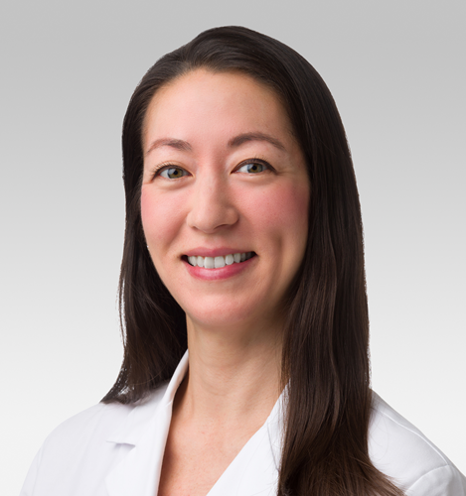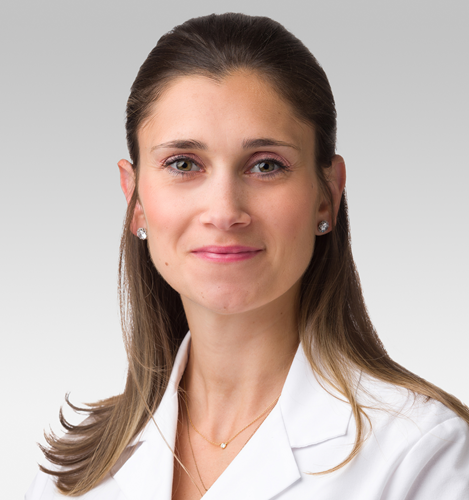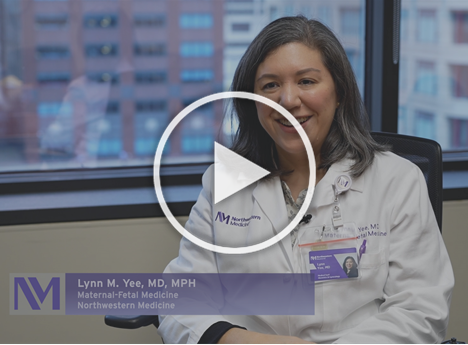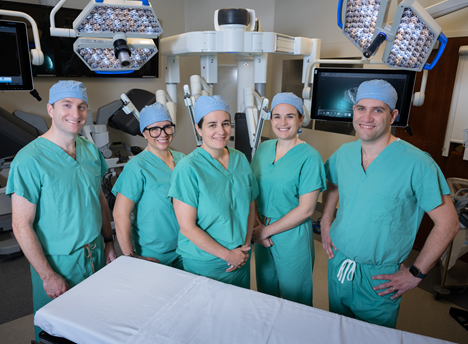|
March 2024 COMPREHENSIVE CARE FOR PERIPARTUM PELVIC FLOOR HEALTH: THE NORTHWESTERN MEDICINE PEAPOD CLINICFeaturing: Carol E. Bretschneider, MD, Julia Geynisman-Tan, MD
Pregnancy and childbirth are life-altering milestones, but they can also bring about various pelvic floor complications. To address these issues, Northwestern Medicine established the Peripartum Evaluation and Assessment of the Pelvic Floor around Delivery (PEAPOD) Clinic. This unique pelvic health program offers specialized care before, during and after pregnancy, standing out as an innovative approach to peripartum care. "The PEAPOD Clinic at Northwestern Medicine opens doors to research and clinical trials, offering our patients access to evidence-based treatments. Through our commitment to advancing the field, we strive to improve the lives of women with pelvic floor disorders,” says Carol “Emi” Bretschneider, MD, division chief of Urogynecology and Reconstructive Pelvic Surgery at Northwestern Medicine. A Holistic and Supportive Approach A multidisciplinary team that specializes in women’s pelvic health staffs the PEAPOD Clinic. The team includes:
"In our program, we are not just providing care; we're setting the standard of care for women nationally. Our approach ensures that every patient receives the highest level of care, and we take pride in being leaders in advancing women's health,” explains Julia Geynisman-Tan, MD, assistant professor of Urogynecology and Reconstructive Pelvic Surgery at Northwestern Medicine. Beyond clinical treatments, the PEAPOD Clinic recognizes the emotional and psychological aspects of peripartum care, offering sexual counseling to address issues related to sexual dysfunction, anxiety and intimacy. The clinic offers support groups and counseling sessions to provide a platform for patients to share their experiences, fostering a sense of community during the postpartum period. Timely Collaboration for Antepartum and Peripartum Care Pelvic floor symptoms can emerge during pregnancy, and while some may naturally resolve post-delivery, others require early intervention. Obstetrician-gynecologists can play a pivotal role in recognizing these issues and referring their patients to the PEAPOD Clinic, either during pregnancy or in the postpartum period. In cases of severe obstetric lacerations or tears, OB-GYNS should advise patients to seek care within a week of delivery. Common Symptoms and Risk Factors for Pelvic Floor Issues The PEAPOD Clinic addresses a range of pelvic floor disorders that patients may experience during or after pregnancy. These disorders include urinary and fecal incontinence, pelvic pain, fistulas and sexual dysfunction. Notably, severe obstetric lacerations, often classified as third- or fourth-degree tears, are a significant risk factor for developing anal incontinence. Various factors, such as using forceps during delivery or a prolonged "pushing" phase of labor, can contribute to these lacerations. Diverse Treatment Options The PEAPOD Clinic offers a range of treatment options for perineal trauma and pelvic floor disorders, such as:
For patients who experienced perineal trauma, immediate treatment options, such as the use of pessaries and bowel-control devices, are available to manage incontinence during the early postpartum period. The clinic also provides surgical correction for wounds that do not heal properly, including anal sphincteroplasty, often accompanied by vaginal and perineal injury revision. "Our clinical team is dedicated to achieving the best possible recovery for patients," says Dr. Geynisman-Tan. “We understand the challenges women face during and after pregnancy, and our goal is to guide them on a path to optimal health and well-being.” Dedicated to Better Care The PEAPOD Clinic is in relentless pursuit of providing exemplary peripartum care, combining specialized clinical expertise, timely interventions and comprehensive support to address the unique pelvic floor health needs of pregnant and postpartum patients. With its multidisciplinary approach and commitment to individualized care, the clinic empowers women to navigate the challenges of pregnancy and childbirth with confidence. |
Carol E. Bretschneider, MD, Division Chief of Urogynecology and Reconstructive Pelvic Surgery in the Department of Obstetrics and Gynecology.
Julia Geynisman-Tan, MD, Assistant Professor of Urogynecology and Reconstructive Pelvic Surgery in the Department of Obstetrics and Gynecology.
Refer a PatientNorthwestern Medicine welcomes the opportunity to collaborate with you in caring for your patients.
|
You May Also Like
|
January 2024 |
January 2024 |






